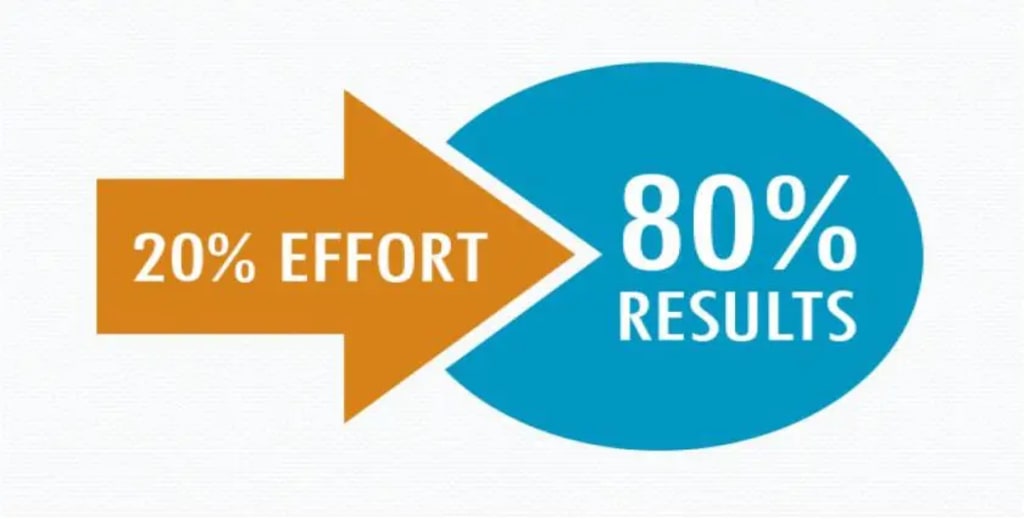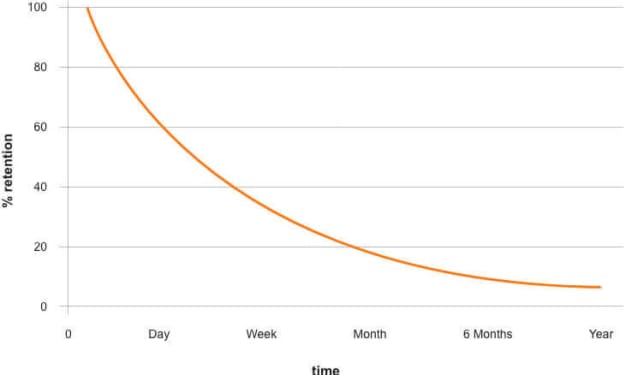80/20 principle
The principle and its application

Do you know the 80/20 principle? The 80/20 principle, also known as the Pareto Principle, states that roughly 80% of the effects come from 20% of the causes. I as a student have used this rule which helped me ace exams.Let me share about how should we apply this rule in studies which i applied as a student
1. Concentrate on content with a high impact: Research indicates that approximately 80% of exam questions may stem from 20% of the stuff you have studied. Your study time might be more effectively spent and your performance can be enhanced by determining and ranking the most crucial ideas or themes.
2.Effective time management: You can better manage your time by realizing that 20% of your study time may yield 80% of your results. Focus on the most important assignments or topics that will provide the biggest returns on your time and energy expenditures.
3.Determine important resources: You can concentrate on the most valuable study resources by using the 80/20 method. For instance, 20% of your textbooks or internet resources may account for 80% of what you study. Finding those high-impact sources can help you study more efficiently.
4. Study strategies that work: It implies that a certain study strategy or approaches might yield the majority of your learning objectives. You can increase your study efficiency and retention by figuring out and applying the best study techniques, such as spaced repetition, active recall, or practice exams.
5. Avoid Over-Studying
Remember that the 80/20 rule also implies that you should avoid over-studying. Spending excessive time on less important topics can lead to diminishing returns. Instead, focus on mastering the key concepts and then move on to other areas if time allows.
Let's understand it with the help of an example, This is the strategy that I apply as a student
When you study for an exam of say law the first thing you should do is do an "A" "B" "C" analysis. Now what is ABC analysis it means to mark those concepts which are most important as A category followed by B and C category. B category will contains those concepts which have average importance and C category will contain those topics which are least important. After your classification, you exactly know that at what topics you should first focus on.
The next step one should do is time management you should allot most of the time to the A category section followed by B and C let's say you are going to complete a subject in 10 days then you have to allot most of the time to A Category section say for example, 5 days and from the remaining 5 days you can allot 3 days to B and 2 days to C section.
The next step and the most crucial step is to select appropriate books it may sound like what's the big deal in it but selecting multiple books or those books which are not right can create a problem I remember during my studies I studied one paper of economics from multiple books I got charts, references and what not which not only caused me confusion but also impacted my results. A student should focus only on the right books. Those books can be which are provided by your teacher or any reference but the important point is it should cover everything and you need not need any other reference apart from that book.
Note that I am not requesting that you neglect anything of the material in your course; that would be absurd. Continue reading the content, but make sure you are focusing most of your attention on the important concepts! It is far more efficient to spend your time developing critical thinking skills than it is to commit everything to memory. I can't emphasize this enough: comprehending everything will enable you to apply your knowledge to problems that show things you would not have seen previously, but memorizing everything will take a lot of time.
About the Creator
shivani joshi
hi there !Welcome to my profile
Enjoyed the story? Support the Creator.
Subscribe for free to receive all their stories in your feed. You could also pledge your support or give them a one-off tip, letting them know you appreciate their work.





Comments
There are no comments for this story
Be the first to respond and start the conversation.